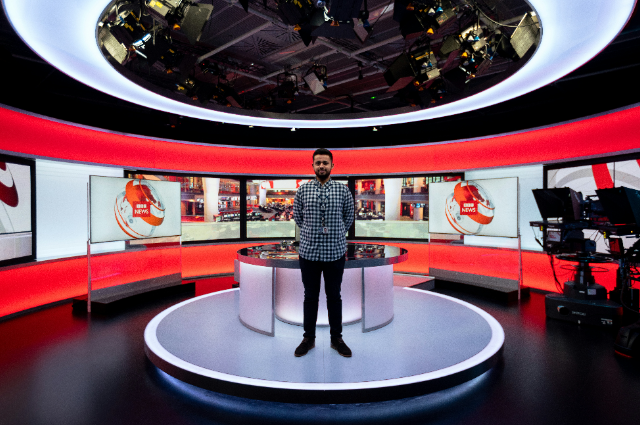
Photo by ThisisEngineering RAEng on Unsplash
A nation is a blank canvas and all the views from people paint a picture but how one defines that picture comes from a powerful source of media representation. Media representation can be best understood as a director of a film where the people are actors.
Media representation basically entails portrayal of ideas, issues and attitudes at a larger platform which creates a public opinion. It's a powerful tool that influences perceptions and beliefs within society by promoting diversity, challenging stereotypes, and amplifying marginalized voices. Some major sources of media that can shape a national narrative comes from journalistic coverage, entertainment industry, social media and advertising.
Media representation has a significant impact in shaping national narratives, as it has the power to influence thoughts which later form a public opinion. For example, even the live coverage of the 26/11 Mumbai attacks played a significant role in highlighting public perception towards terrorism. One way media representation can shape national narratives is by highlighting certain events or perspectives while downplaying others. In India, all these years the marginalized community has been ignored by mainstream media representation.
Media can form the mainstream narrative by enforcing or erasing the existing stereotypes and biases. Back in the days the media represented African Americans in a negative light which shaped the racial discrimination stereotype in society. But one can't ignore the positive power of the media in presenting the portrayal of social issues and innovations. For example, the female characters shown defying gender stereotypes have led to women empowerment. It can challenge and change national narratives as we know during India’s independence movement the struggle for freedom was covered by two leading newspaper organizations which in turn led to the feelings of solidarity among all.
With the coming of technology, there's a revolution in the media industry which is social media.
It has actually made dissemination of information so easy which has its pros and cons.
Social media helps people from various areas holding the same ideas connect and contribute in shaping a narrative, for example the social media movements of #BlackLivesMatter and #MeToo. Whereas it also has a downside because it leads to spread of misinformation for example during the COVID pandemic false claims about treatments had flooded which led to people believing in misleading information.
As it's said there's a degree of power in everything but it depends on how one utilizes it, media representation can lead to creating an inclusive and equitable society or if misused can lead to forming stereotypes and biases which end up impacting the overall growth of a society. Absolute freedom without a regulatory body can lead to abuse of power hence freedom to express with certain limitations must be practiced. Also, we as consumers of media need to be critical in choosing what the mainstream idea should look like. It is the responsibility of policymakers and the people who form the society to work towards building a community that's inclusive and doesn't cater to only the dominant voices.
